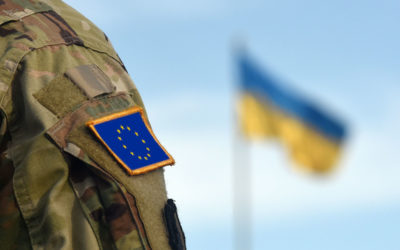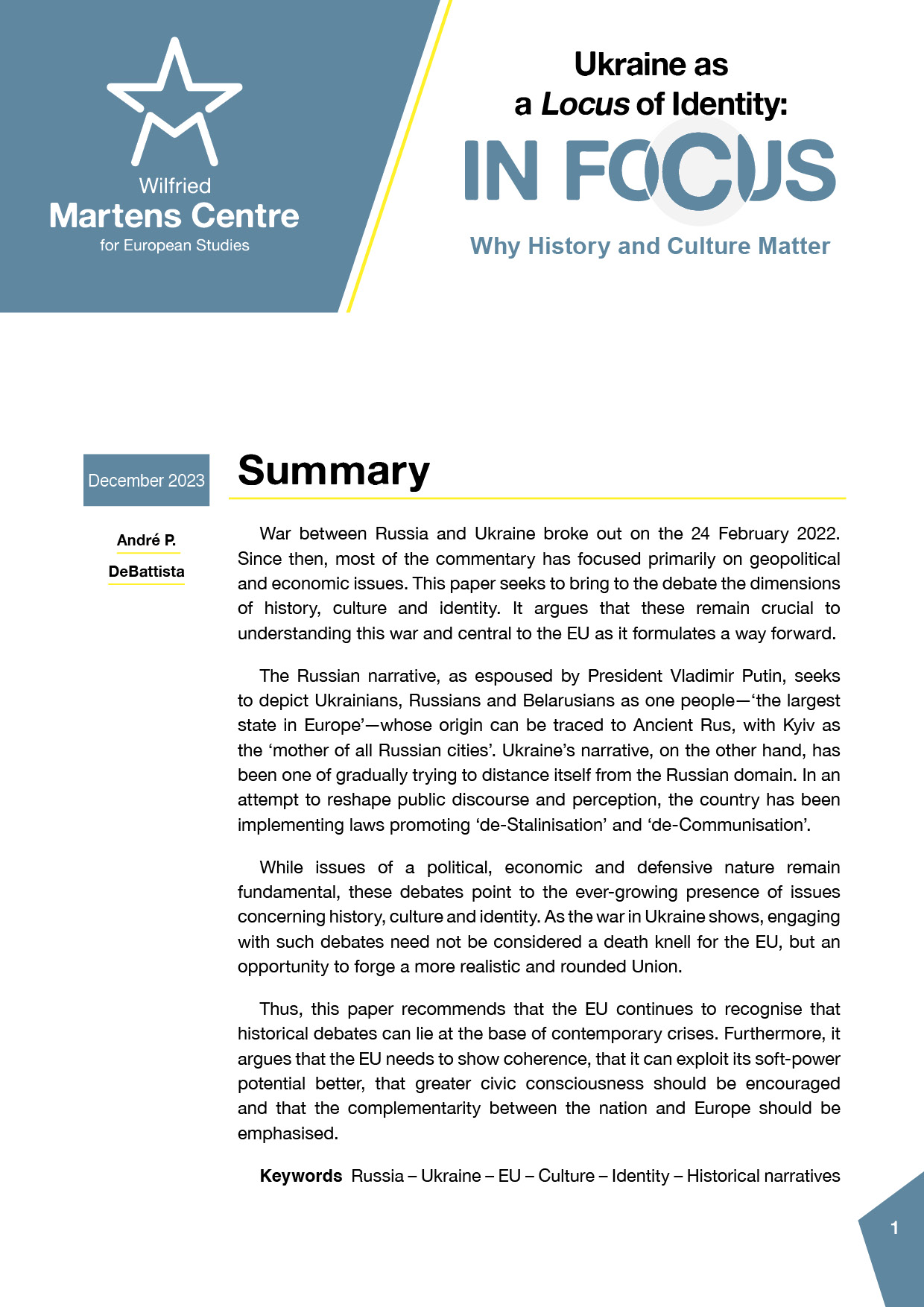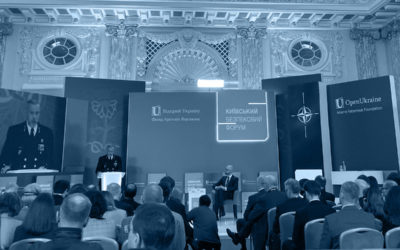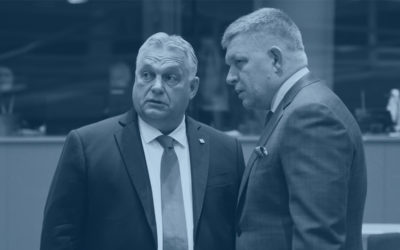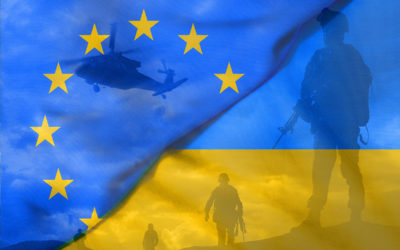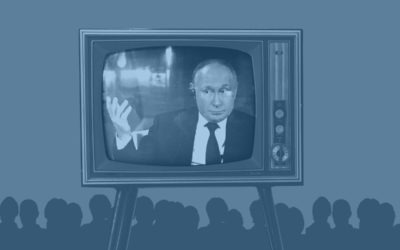Russia, Ukraine and the question of giving up nuclear weapons
18 March 2014
When the Soviet Union collapsed in 1991 and a number of countries became independent on its former territory the number of states armed with nuclear weapons increased by three: Belarus, Kazakhstan and Ukraine inherited the Soviet nuclear weapons on their territory. By far the largest arsenal remained in newly independent Ukraine, including 2500 tactical nuclear weapons plus 130 SS-19 and 46 modern SS-24 Intercontinental Ballistic Missiles (ICBMs) with about 1900 strategic warheads. At that time this was the third largest nuclear arsenal in the world. International diplomatic efforts led to the signing of the Lisbon Protocol to the START (Strategic Arms Reduction Treaty) in 1992. Under this agreement, Ukraine (as well as Belarus and Kazakhstan) would join the Nuclear Non-proliferation Treaty (NPT) as a non-nuclear weapons state and would return the nuclear weapons on its territory to Russia, which would become the successor of the Soviet Union as a nuclear weapons state.
The practical implementation, however, took time and met with resistance: the last weapons were only returned in 1996. In the meantime, a debate had begun whether the strategic nuclear weapons (ICBMs and warheads) should be retained by Ukraine. The 1994 Budapest Memorandum, signed by Russia, the United States and the UK was a key piece to overcome these problems in the transition of Ukraine to non-nuclear status by giving security guarantees (both against territorial and economic threats) to Ukraine as well as assistance for the return of the warheads to Russia and the elimination of the missile systems in Ukraine. Even though the Budapest Memorandum falls short of explicitly giving security guarantees that would trigger automatic military response, the document contains strong political assurances that are legally binding for the signatories.
Leaving aside the question whether Ukraine would have been able to maintain the nuclear weapons systems it inherited from the Soviet Union, one might ask (and people in Ukraine actually do this) if the current crisis would have evolved in the same ways if Ukraine were still a nuclear power. While this question is, of course, theoretical it has significant impact in the reasoning of those countries that are either thinking to develop a nuclear arsenal or those who think of giving up their nuclear weapons. What transpires from the current crisis is that you should not give up your nuclear weapons for declarations of political will or assurances unless your conventional capabilities are sufficient for self-defence or you are member of a military alliance with strong security guarantees and automated mechanisms to invoke defence of your territory by the alliance in case of attack. If you are thinking to ‘go nuclear’, the current events might boost your intentions even further. For the goal of international non-proliferation of nuclear weapons, for the NPT and naturally for the ongoing negotiations with Iran, these conclusions are of course disastrous. At the same time, the nervous responses from the Baltic countries are a reminder that the US concept of extended deterrence fundamentally relies on the assurance of its allies that the US will fulfil its security obligations. That assuring allies can be more difficult than deterring adversaries is a lesson already learned at different stages during the Cold War.
What are the conclusions from this for Europeans and transatlantic partners? The damage to nuclear non-proliferation efforts has already been done but the reactions of the West in the ongoing crisis will determine whether this damage can be contained or more ‘fallout’ is produced. For the West, this basically means that any changes to Ukrainian territorial integrity by force, pressure and action not in accordance with international law must be and have to remain unacceptable. There are many possible actions that fall short of military intervention that can and should be explored. But beyond the actual crisis in Ukraine there are things to be learned and considered. Any possible window of opportunity for further nuclear (reduction) treaties between the US and Russia is definitely closed for some time to come. But there is no need to be afraid of a new nuclear build-up at this moment. The US should remain focused on coming up with a nuclear force structure that is sufficient and also affordable in the mid to long-term. Current forecasts predict the US will spend a total of $1 trillion on the nuclear triad (aircraft based systems, land and submarine based missile systems) over the next 30 years. These costs are likely to be unsustainable. Therefore a discussion is needed on the future of the US deterrent including both strategic and budgetary implications. While this will primarily be a discussion going on within the US, the voice and opinions of those countries ‘under the US nuclear umbrella’ should be heard as well. For Europe, this means answering some rather uncomfortable questions: How do we deal with the threat perceived by NATO members on the Eastern periphery of the alliance? What is the political and military role of US tactical nuclear weapons in Europe? What kind of “assurance” do European allies of the US require and expect? How would Europe with its partners respond to a scenario in which the ban of intermediate range missile systems under the INF treaty fell? There have been ongoing allegations that Russia is either violating or at least trying to circumvent the INF treaty. On the other hand, Russia could simply terminate the treaty, arguing that a similar move had been made by the US in terminating the ABM (Anti Ballistic Missile) Treaty in 2002.
While one could say that these are indeed bleak perspectives, one should not forget that there are still areas for nuclear cooperation that should not be spoiled. The risk arising from nuclear terrorism is real not only for the West but also for Russia and other countries. Even though President Putin will not attend the Nuclear Security Summit that will take place next week in The Hague there can be little interest on the Russian side not to continue international cooperation. The same should be true for us.
[Disclaimer: The opinions expressed in this blog post are entirely those of the author and do not represent those of any organisation.]
ENJOYING THIS CONTENT?




